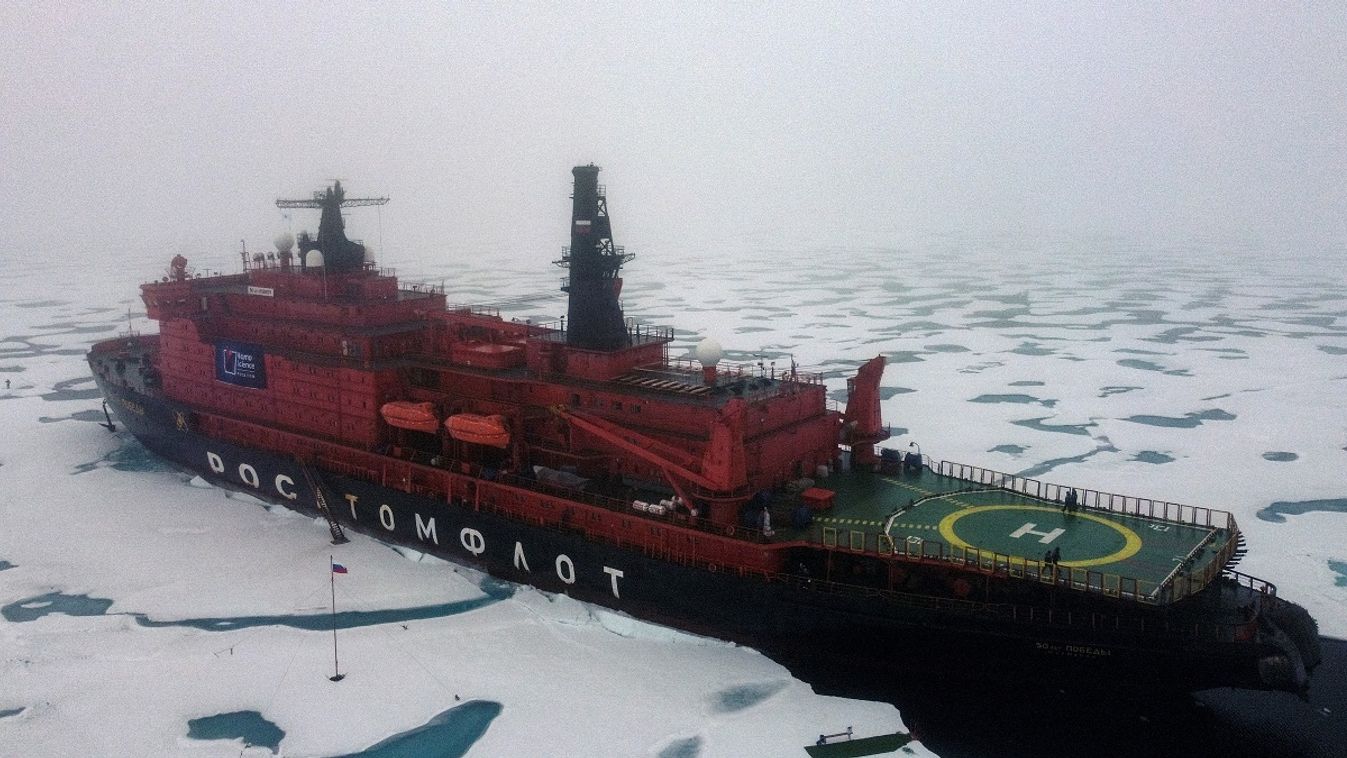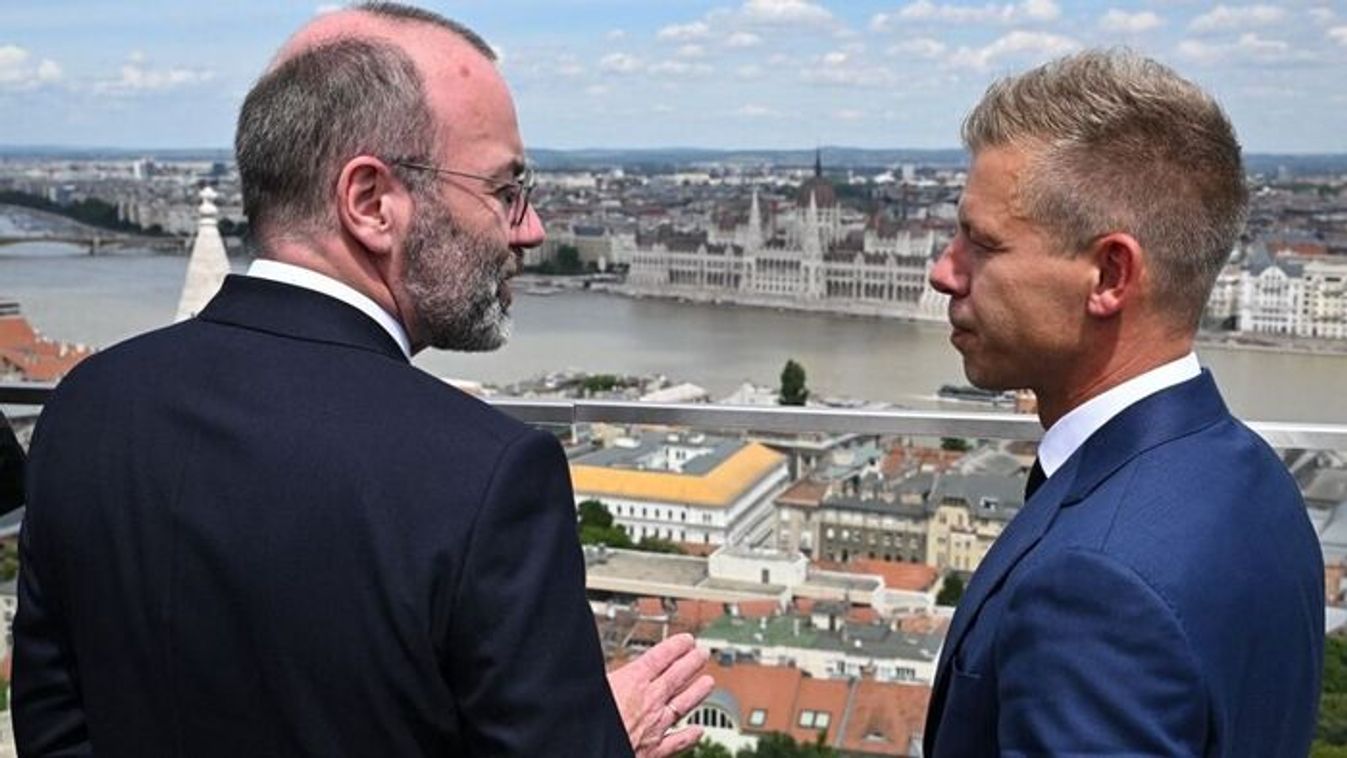Ez is napvilágot látott: Magyar Péter tudhatta, milyen bosszút forralnak Magyarország ellen

A szakértő szerint közölték a Tisza Párt elnökével, mi a feltétele a hivatalban maradásának.

It remains unclear how many projects will be affected due to the war in Ukraine, but in the short term natural extraction projects in Siberia could be affected as well as shipping along the Northern Sea Route - Fréderic Lasserre professor of Geography pointed out in a conversation with Lénárd Sándor.



If one thinks of the Arctic, probably the first thing that comes to mind is the cold and harsh environmental conditions. Nevertheless, the desire to explore this remote area dates back to centuries. Even Hungarians were part of an expedition to the Franz Josef Land in the 19th century. Why has been this area considered important? Is it a “fifth ocean on top of the world”?
Long before Europeans endeavored in earnest the exploration of the area with a view to discovering a sea route to the Far East and its reported riches, the Vikings discovered Iceland, Greenland and the Vinland (now Newfoundland and probably Labrador). The Pomors also probably navigated east along the Siberian coast. What triggered a renewed interest from the 16th century on was the possibility to find a direct route circumventing the Americas, discovered in 1492, to China, the silk, spices and riches of the Far East. Scientific reasons also began to garner importance in the 19th century with the desire to fill in the blank spots in the world maps: what lay in the Arctic Ocean? A new continent to explore? A vast frozen sea?
Why has the Arctic become strategically important? What natural or other resources lie underneath or in the Arctic that make this region increasingly attractive?
Natural resources have been known to be present in the Arctic since the XIXth century: a few mines were exploited in Greenland in the late XVIIIth century; coal was abundant and exploited in Svalbard in the second half of the XIXth century and this rush triggered a major sovereignty dispute that ended with the Spitsbergen Treaty in 1920 giving the archipelago to Norway with access for treaty signatories. Oil was discovered in Norman Wells in the Yukon (Canada) in 1920, and huge nickel ore fields in the Kola peninsula and in Norilsk in the 1930s. Other examples abound of an early realization that resources were present in the Arctic, but difficult and expensive to exploit. What made the Arctic strategic after 1945 was the onset of the Cold War and the fact the shortest distance between the Soviet Union and the United States for bombers and later intercontinental missiles was across the Arctic.
That led to an early militarization of the region.
This focus disappeared after 1991 and the collapse of the USSR. It took several years before the gradual impact of climate change, an easier maritime access to the Arctic with the melting of the sea ice, and rising natural resources prices led to a renewed interest for the region, its natural resources known to be present but in yet undetermined quantities. The possibility of opening shorter sea routes between the Atlantic and the Pacific also nurtured the dream of the onset of Arctic seaways across the Northwest and the Northeast passages, or even across the heart of the Arctic Ocean.
Who are the “Arctic countries” and what international legal regime governs this remote area? What is the role of the Arctic Council?
The Arctic countries are the member States of the Arctic Council: Denmark (Greenland), Norway, Sweden, Finland, Iceland, Canada, the United States and Russia. They are called the A8. A subgroup, the A5, comprises the Arctic States bordering the Arctic Ocean and thus do not include Sweden, Finland and Iceland.
Some States developed the concept of “near Arctic State” or its equivalent, China and the United Kingdom, thus trying to legitimize their interest for the Arctic.
The international legal regime that prevails in the area is the United Nations Convention on the Law of the Sea (UNCLOS), enforced since 1994. The European Union tried to promote, circa 2007, the idea of negotiating a new specific treaty for the Arctic, on the basis that there was a similar treaty for the Antarctic. The proposal was flatly rejected by several Arctic States on the basis that the Antarctic was a continent with no permanent population, whereas the Arctic was an ocean surrounded by populated States and where an internationally negotiated legal regime, UNCLOS, prevailed since the Arctic was an ocean. The proposal was all the more fraught upon by several Arctic States as the European Parliament called for the idea of international straits along the Northwest and Northeast passages (thus colliding with Russia and Canada) and lobbied for the ban of seal products, therefore triggering an angry reaction by native communities that also led to the rejection of the Arctic treaty proposal and compromising the EU’s application for observer status at the Arctic Council –
the EU was merely granted the ad hoc observer status.
Therefore, according to UNCLOS regulation, the Arctic States have the right to explore the riches of sea and the seabed as well as to exercise jurisdiction in certain zones…
The Arctic Ocean is not considered different from the other oceans and the rights of riparian States are recognized by the UNCLOS: States have the right to exercise sovereign rights over natural resources in their respective Exclusive Economic Zone and possible extended continental shelves.
Of the total Arctic Ocean coastline, more than 50% is Russian. It seems that Russia is the leading actor in this region. What are its geopolitical implications from the point of view of Russia? How has the melting ice changed the security considerations of Russia?
That Russia is the leading actor depends on the criteria, but its actions and decisions definitely impact the Arctic area, if only by the sheer size of its Arctic territory indeed. Besides, for political reasons, Moscow actively supports the development of natural resources extraction and the construction of infrastructures in Siberia, much more so than in other Arctic territories. There are abundant natural resources in Siberia, but this is not decisive since resources also abound in Alaska or Canada for instance. There is a definite will to develop these resources as the extractive sector is responsible for a large share of Russia’s GDP, and within this share, Arctic resources’ share is expanding because of the gradual depletion of fields to the south and the gradual development of new Siberian fields. Thus,
the economic importance of Russia’s Arctic is increasing
at a time when the melting of sea ice also offers new possibilities for development – an easier access for marine areas and coastal regions, and the possibility to develop Arctic routes. The conjunction of this increasing importance and the opportunity provided by climate change transformed the Arctic into a major stake for Moscow, with the perception this area must be protected and secured, especially in the frame of deteriorating relations with the United States and Western States.
How might the war in Ukraine challenge or change the geopolitical balance of the Arctic?
The first impact is the acceleration of the deterioration of relationship between Russia and NATO/Western States. Russia had initiated a military buildup in the Arctic since about 2007 with a view to stemming its decline in military capacity and protecting a strategic region. Moscow is likely to accelerate this military buildup, not only because it might fear a conflict someday, but also as a retaliation for the support of Ukraine by other Arctic States and the probable admission of Finland and Sweden in NATO.
The second is the drying up of Western and Japanese economic cooperation in the development of the Russian Arctic. It already was limited because of sanctions after the annexation of Crimea in 2014, but several major extractive companies like French Total or British Shell have decided to freeze and even pull out of several major energy projects. It remains unclear how many projects will be affected and to what extent other companies, for instance from China or India, might take over, but
in the short term natural extraction projects in Siberia could be affected as well as shipping along the Northern Sea Route
– European companies represented about 15% of total traffic in 2021.
Is it likely that Chinese or Indian companies would swiftly take the place of Western businesses that have been involved in the exploration?
This is difficult to say. They might certainly wish to do so. Two elements might slow them down, especially for Chinese companies: the Russian desire not to depend too much on China; and the capacity for these companies to bring in capital and technology.
Several extractive projects still depended on Western or Japanese technology
for either extraction or the construction of high ice-class vessels. If critical technology is not available, then even if Chinese or Indian companies are very willing, Moscow may not grant them long-term contracts to develop resource fields.
A couple of years ago you wrote a book about China’s Arctic challenge. Could you explain your findings?
It appears China is indeed interested in the Arctic, and pursues economic and political objectives in the area: participate more actively in the region’s governance and in the development of economic opportunities, resource development and shipping. Chinese extractive companies are active but, if they did sign major agreements with Russia for gas development, notably with the Yamal project, they are not the only active foreign companies nor did they take a dominant position. With the war in Ukraine,
it may be that Russia will turn more to China for capital, but Moscow is also eager to maintain an equilibrium and refrain from becoming too dependent on China.
Besides, if China is indeed interested in Arctic issues, the Arctic is not prominent on Beijing’s agenda. Central Asia, Southeast Asia, Africa, the Middle East are regions that are far more important for China than the Arctic. China is pursuing an opportunistic strategy and thus tries to play promote its interests. It did so, so far, taking into account the fears of several Arctic States that it was perceived as a threat to their national interests: it refrained from challenging Canada and Russia’s claims to their Arctic passages, abode by the transit regulations and partnered with Russian companies for oil and gas extraction while respecting regulations in Canada. Will this behaviour last remains to be seen as several observers are still convinced China is nurturing long-term objectives in the Arctic that could lead it to challenge national sovereignties in the region.